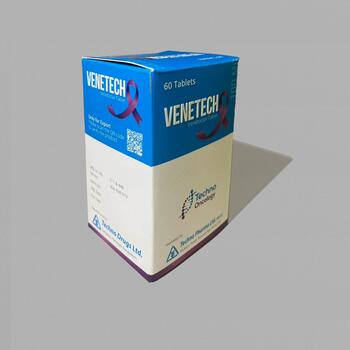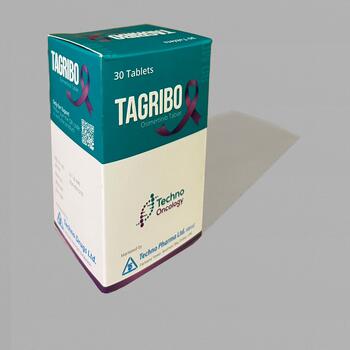维奈托克,(Venetoclax)100mg

1. Composition:
The active ingredient in Venetoclax is Venetoclax, a small molecule compound that directly targets the BCL-2 protein. BCL-2 is an anti-apoptotic protein that helps cancer cells survive by inhibiting cell death pathways. By inhibiting BCL-2, Venetoclax induces cancer cell death, thereby slowing or stopping the progression of cancer.
2. Indications:
Venetoclax is primarily used to treat the following diseases:
- Chronic Lymphocytic Leukemia (CLL): It is indicated for patients who are refractory to other treatments or have relapsed, especially those with a 17p deletion (a chromosomal abnormality).
- Acute Myeloid Leukemia (AML): It is used in combination with other drugs to treat elderly patients with newly diagnosed AML who are ineligible for standard chemotherapy or have comorbidities.
3. Usage:
Venetoclax is typically administered in the form of oral tablets. The dosage is gradually increased, starting with once daily, and the dose is adjusted by the doctor according to the patient’s tolerance and condition. Common treatment regimens include:
- For CLL: The dosage is usually escalated, starting from 20 mg and gradually increasing to 400 mg daily.
- For AML: Venetoclax is usually combined with Azacitidine, Decitabine, or low-dose Cytarabine, with dosage adjustments based on the patient's condition and doctor's discretion.
4. Research & Development History:
Venetoclax was co-developed by AbbVie and Roche and first received approval from the U.S. FDA in 2016 for the treatment of CLL patients, particularly those with a high-risk 17p deletion. This approval marked the first clinical use of a BCL-2 inhibitor. Subsequently, the indications for Venetoclax were expanded to include other types of blood cancers, including Acute Myeloid Leukemia (AML).
5. Mechanism of Action
Venetoclax selectively inhibits the BCL-2 protein, preventing it from binding to pro-apoptotic proteins, thereby restoring the normal apoptosis mechanism in cancer cells. BCL-2 is usually overexpressed in leukemia cells, preventing these cancer cells from dying and leading to the persistence of the disease. By inhibiting BCL-2, Venetoclax induces the self-destruction of cancer cells, achieving therapeutic effects.
6. Summary
Venetoclax is a targeted therapy drug specifically designed for cancer cells that depend on the BCL-2 protein for survival. Unlike traditional chemotherapy, it can more precisely attack cancer cells and has fewer systemic side effects. However, like all anti-cancer drugs, Venetoclax also carries specific side effects and risks, such as tumor lysis syndrome, increased risk of infection, anemia, and thrombocytopenia.






